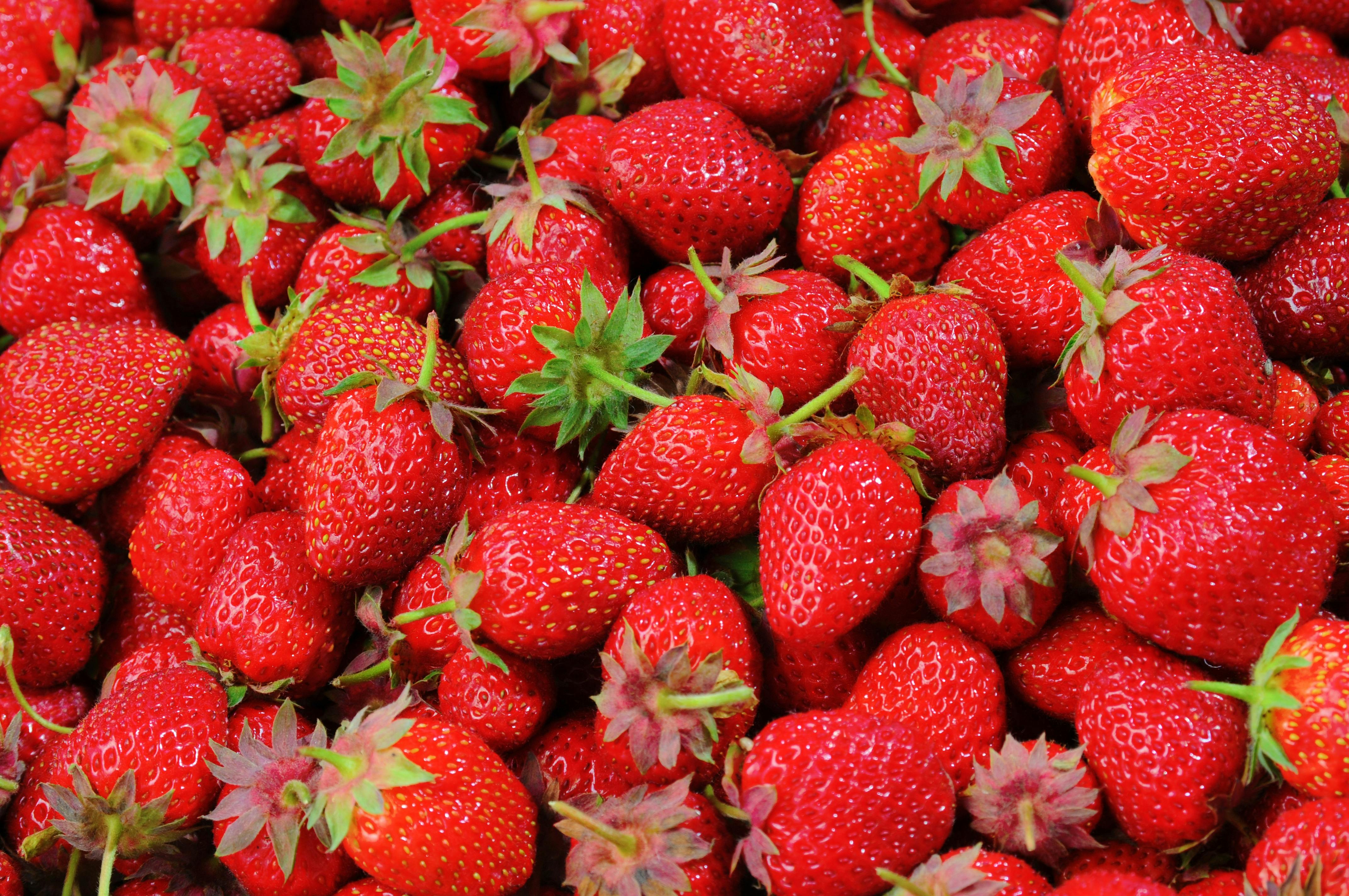Eggplant fruit, also known as aubergines, are a popular vegetable in many parts of the world. But if you’ve noticed that your eggplants have been disappearing from your garden or farm, you may be wondering what’s eating your eggplant fruit. In this article, we’ll discuss some of the most common culprits and how to protect your precious eggplants from them.There are several potential causes of damage to eggplant fruits. These include pests such as flea beetles, Colorado potato beetles, and aphids; fungal diseases such as verticillium wilt; and environmental factors such as poor water or nutrient management. If the damage is occurring, it is important to identify the cause in order to take the appropriate steps to protect the plants.
Insects
Insects are one of the most common causes of damage to eggplant fruit. Various species of aphids, flea beetles, whiteflies, and mites feed on the leaves and stems of eggplants, causing them to wilt or discolor. In addition, the larvae of the European corn borer can feed on the fruit itself, leaving small holes in the skin. In some cases, these pests can spread fungal infections from plant to plant.
Environmental Factors
Eggplants are particularly sensitive to environmental conditions such as temperature and humidity. If temperatures dip below 50 degrees Fahrenheit (10 degrees Celsius), the plants may suffer frost damage. High humidity levels can lead to fungal diseases such as early blight or verticillium wilt, which can cause wilting leaves and dark spots on the fruit. In addition, too much sun or wind can cause sunscald or windburn on the skin of eggplants.
Nutrient Deficiencies
Nutrient deficiencies in soil can also cause damage to eggplant fruit. In particular, calcium deficiency is a common problem that results in blossom end rot – a condition that causes sunken black spots at the base of eggplant fruits. Lack of nitrogen and potassium in soil can also affect fruit production and quality.
Diseases
Fungal diseases are some of the most serious threats to eggplant production. The most common disease is late blight, which is caused by a water mold called Phytophthora infestans. This pathogen thrives in wet conditions and spreads quickly from plant to plant via airborne spores. It results in black lesions on leaves and stems as well as sunken brown spots on fruits.
Common Insects That Eat Eggplant Fruit
Eggplants are a popular garden plant that can be a target of several insect pests. These insects include flea beetles, aphids, Colorado potato beetles, and tomato hornworms. Flea beetles are small black or brown jumping insects that feed on the leaves of eggplants. They create small holes in the foliage and can spread diseases such as bacterial wilt. Aphids are tiny green or black insects that feed on the underside of leaves and cause them to curl, become distorted, and develop yellow spots. To control aphids, use insecticidal soaps or horticultural oils. Colorado potato beetles are yellowish-orange with black stripes and will chew on the fruit and leaves of eggplants. To reduce their populations, hand-pick them off plants when possible or use insecticides labeled for their control. Tomato hornworms are large green caterpillars with white markings on their sides. They feed on both the foliage and fruits of eggplants and should be hand-picked off plants when noticed. If populations become too high, use Bacillus thuringiensis (Bt) to control them.
In addition to these common insect pests, there may also be other less obvious problems such as nematodes (eelworms), which feed on plant roots causing stunted growth and wilting of plants; cutworms which cut plants off near ground level; leaf miners which burrow through leaves leaving trails of damage; spider mites which can cause yellowing or bronzing of foliage; and thrips which suck sap from plants resulting in silvery patches or distorted growth. To reduce populations of these pests, use cultural practices such as crop rotation or cover crops to disrupt pest life cycles; clean up garden debris promptly since many insects overwinter in debris; practice good sanitation by removing diseased plants promptly; choose resistant varieties; water deeply but infrequently to discourage shallow root systems that are more susceptible to damage from nematodes; use traps such as sticky cards for thrips; introduce beneficials such as ladybugs to naturally reduce pest numbers; or apply insecticides according to label instructions.
By controlling common insect pests that eat eggplant fruit, gardeners can prevent significant damage to their plants allowing for a successful harvest year after year.
Identifying Insects That Eat Eggplant Fruit
Eggplant is a popular vegetable in many parts of the world. Unfortunately, it can be susceptible to insect infestations. Identifying the insects that feed on eggplant fruit can help you manage and prevent them from damaging your crop.
The most common insect pests of eggplant are aphids, flea beetles, and Colorado potato beetles. Aphids are small, soft-bodied insects that suck the juices from leaves and stems. They can cause stunted growth in plants and produce a sticky substance called honeydew which attracts other insects such as ants. Flea beetles are small black or brown beetles with long hind legs that allow them to jump when disturbed. They chew tiny holes in leaves and stems which can cause significant damage to the plant. Colorado potato beetles are yellow-orange with black stripes down their backs and can quickly defoliate entire plants if left unchecked.
Other less common pests include caterpillars, whiteflies, leafhoppers, and cutworms. Caterpillars are small green or brown larvae that feed on foliage, often leaving behind only veins on the leaf surface. Whiteflies are tiny white insects that produce a sticky substance on plant leaves which may lead to mold growth on the plant’s surface. Leafhoppers are small green or brown insects that suck sap from leaves and cause yellowing or discoloration of foliage as they feed. Cutworms are grayish-brown caterpillars found in soil around plants where they chew through stems near the base of the plant causing wilting or death of the plant if not managed quickly enough.
Managing these pests requires an integrated pest management approach including cultural practices such as crop rotation, using resistant varieties, handpicking insects off plants when found, and encouraging beneficial insects such as ladybugs which eat aphids and other pests. You may also need to use chemical insecticides if infestations become too severe to control with other methods alone.
How to Deter Insects from Eating Eggplant Fruit
Eggplant is a popular garden vegetable that can be successfully grown in a variety of climates. Unfortunately, it can also be affected by a variety of pests, including insects that feed on the fruit. To deter insects from eating eggplant fruit, there are several steps you can take.
The first step is to plant your eggplants in an area that receives full sun for at least 6 hours each day. This will help ensure the plants get enough sunlight to produce healthy fruits and help deter certain types of insects.
It is important to keep your plants well-watered and fertilized throughout the growing season. This will help promote healthy growth and discourage certain types of insect pests from settling on your plants.
You should also make sure to keep your garden free of debris and weeds, as these can provide harborage for insect pests. If you discover any insect pests on your plants, you should remove them manually or treat them with an appropriate pesticide according to label instructions.
Finally, you may want to consider using row covers or other physical barriers as an additional form of protection against insect pests. Row covers can help protect against certain types of flying insect pests while still allowing light and water to reach the plants.

Protecting Eggplant Fruit
Eggplant is a popular vegetable enjoyed by many people around the world. However, it is susceptible to various diseases and pests that can lead to fruit damage and crop loss. Therefore, it is important to take preventive measures to protect eggplant fruit from these threats.
One of the most common forms of pest damage to eggplant fruit is caused by flea beetles. Flea beetles are small, black bugs that feed on the leaves and fruits of eggplants. They can cause serious damage by creating tiny holes in the skin of the fruit, making it unmarketable. To prevent flea beetle infestations, farmers should rotate crops regularly and use insecticides or row covers during the growing season.
Eggplant crops can also be damaged by fungal diseases such as alternaria blight and anthracnose. Alternaria blight typically appears as dark spots on leaf surfaces while anthracnose causes circular spots on the surface of fruits and leaves. To prevent these diseases from spreading, farmers should plant disease-resistant varieties of eggplants and practice crop rotation or companion planting with other vegetables such as potatoes or tomatoes. Additionally, they should remove diseased plants from their fields immediately and use fungicides as needed to control outbreaks.
Finally, good cultural practices are important for protecting eggplant crops from disease and pest damage. This includes removing weeds regularly, applying mulch around plants to retain moisture in the soil, irrigating plants carefully, and providing adequate spacing between plants for better air circulation. Following these simple steps will help keep your eggplants healthy and productive throughout the growing season.
Natural Ways to Repel Insects from Eating Eggplant Fruit
Eggplant is a tasty and healthy addition to any meal, but it can be difficult to protect this delicate fruit from pests. Common garden pests, such as aphids and beetles, are known to feed on eggplant fruit, which can cause serious damage. Fortunately, there are natural methods of keeping these insects away without resorting to chemical pesticides. Here are some of the best ways to keep insects away from eggplant fruit without harming the environment.
One of the easiest ways to repel insects is by using companion planting. Planting certain herbs and plants near your eggplants can naturally help repel pests. Garlic and chives are known for their strong smell and deter many common garden pests. Similarly, marigolds have been shown to keep away root-knot nematodes that commonly attack eggplants.
Another great natural way of repelling insects is with homemade sprays that don’t contain any harmful chemicals. Combine garlic cloves, chili peppers, and a few drops of dish soap in a blender with some water. Strain out the solids and spray the liquid on your plants every few days for optimal protection against bugs. You can also use neem oil or a mixture of peppermint oil and water for similar results.
Finally, keeping your garden clean is essential for keeping away pests from your eggplants. Regularly remove any weeds or dead leaves around your plants so that bugs don’t have anywhere to hide or breed. If you find any damaged or rotting fruit on your plants, be sure to remove them immediately so that they don’t attract more pests.
By following these tips you can easily keep away insects from eating your eggplant fruit without resorting to chemical means. With just a little bit of effort you can keep your plants safe from harm while enjoying all the delicious fruits they have to offer!
Keeping Insects Away from Eggplants
Organic gardening is becoming increasingly popular, as it is an environmentally friendly way to grow fruits and vegetables. Unfortunately, pests, such as insects, can be a problem for organic gardeners. Eggplants are especially susceptible to insect infestations, so controlling them is essential for successful harvests. Fortunately, there are several home remedies that can help keep the bugs away from eggplants without resorting to harsh chemical pesticides.
One of the most effective home remedies for controlling insects on eggplants is to spray a garlic and water mixture on the plants. Simply mix two tablespoons of minced garlic in one gallon of water and spray the mixture directly onto the leaves of the eggplant plants. Garlic oil can also be used instead of garlic cloves; just mix two teaspoons of garlic oil with one gallon of water. The pungent smell and taste of garlic will repel many common garden pests.
Another home remedy for keeping insects away from eggplants is to use neem oil. Neem oil is derived from the seeds of the neem tree and has been used for centuries in India as an insect repellent. To use neem oil on eggplants, mix two teaspoons of neem oil with one gallon of water and spray directly onto the leaves and stems of the plants. This will help keep many types of insects at bay.
In addition to sprays, companion planting can also help reduce insect populations around eggplant plants. Planting certain herbs near the eggplant will repel certain types of pests while encouraging beneficial insects that will keep other bugs away from your plants. Some good companion plants for eggplants include marigolds, basil, dill, and oregano.
Finally, handpicking any bugs you find on your eggplant plants is an effective way to reduce their populations in your garden. Make sure to check your plants regularly so that you can remove any pests before they have a chance to do too much damage.

Conclusion
Eggplant fruits can be a delicious and nutritious addition to any diet. However, it is important to be aware of the potential risks associated with eating them, including the possibility of pesticide residues and possible infestation by pests. Pesticide residue can potentially cause health problems, while pest infestation can ruin the taste of the fruit. Taking precautions such as washing and inspecting the fruit before eating it will help minimize these risks. Additionally, it is important to buy organic eggplant whenever possible to reduce the risk of pesticide exposure. With proper precautions and knowledge, eggplant can be a safe and tasty addition to your diet.
Overall, understanding what is eating my eggplant fruit is an important part of maintaining a healthy lifestyle. Learning about potential risks associated with consuming eggplant can help you make informed decisions about what you eat. Taking necessary precautions when purchasing and consuming eggplant will ensure that you are getting the most nutritional benefits from this delicious fruit.



